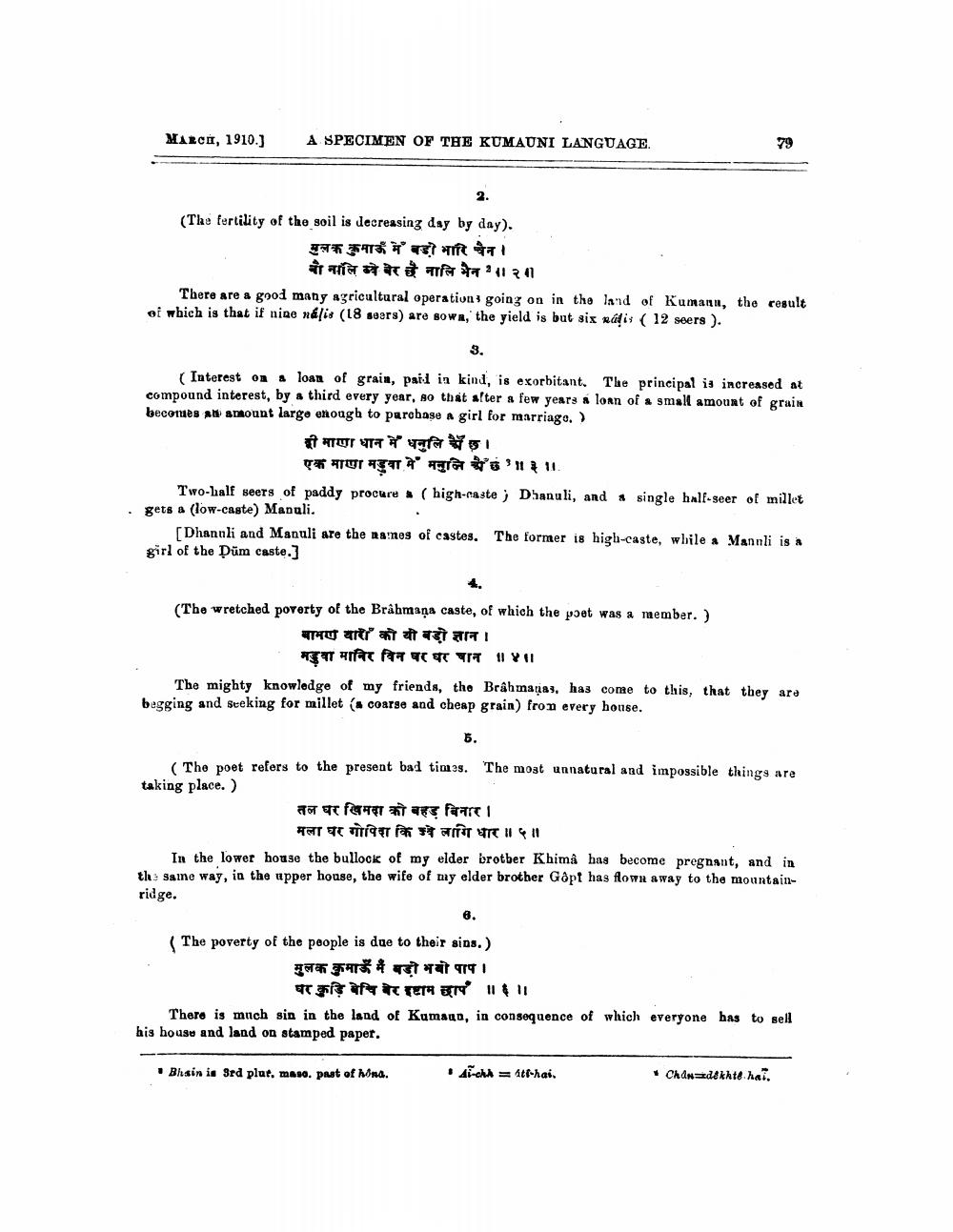________________
MARCH, 1910.]
A SPECIMEN OF THE KUMAUNI LANGUAGE.
2.
(The fertility of the soil is decreasing day by day).
मुलक कुमाऊँ में बड़ो भारि चैन । बी नॉॉल वे बेर छै नालि भैन ॥ २ ॥
There are a good many agricultural operations going on in the land of Kumanu, the result of which is that if nine nális (18 seers) are sown, the yield is but six nadis ( 12 seers).
3.
(Interest on a loan of grain, paid in kind, is exorbitant. The principal is increased at compound interest, by a third every year, so that after a few years a loan of a small amount of grain becomes an amount large enough to purchase a girl for marriage.)
डी मारणा धान में धनुलि क छ ।
एक माणा मड़वा में मनुलि छं १ ॥ ३ ॥ ॥
Two-half seers of paddy procure a (high-caste; Dhanuli, and a single half-seer of millet gets a (low-caste) Manuli.
[Dhanuli and Manuli are the names of castes. The former is high-caste, while a Mannli is a girl of the Dum caste.]
(The wretched poverty of the Brahmana caste, of which the poet was a member. )
बामण यारों को यी बड़ी ज्ञान ।
मड़वा मानिर विन घर घर जान ॥ ४ ॥
79
The mighty knowledge of my friends, the Brahmanas, has come to this, that they are begging and seeking for millet (a coarse and cheap grain) from every house.
5.
(The poet refers to the present bad times. The most unnatural and impossible things are taking place.)
तल घर खिमदा को बहड़ बिनार ।
मला घर गोपिदा कि वे लागि धार ॥ ५ ॥
In the lower house the bullock of my elder brother Khimâ has become pregnant, and in the same way, in the upper house, the wife of my elder brother Gôpt has flown away to the mountainridge.
6.
(The poverty of the people is due to their sins.)
मुलक कुमाऊँ मैं बड़ो भयो पाप ।
घर कुड़ि बेचि बेर इष्टाम छाप ॥ ६ ॥
Bhain is 3rd plur, maso. past of hôna.
There is much sin in the land of Kumaun, in consequence of which everyone has to sell his house and land on stamped paper.
Ai-chhitt-hai.
Chan dekhte hai.




